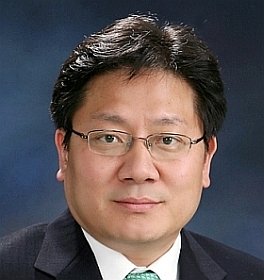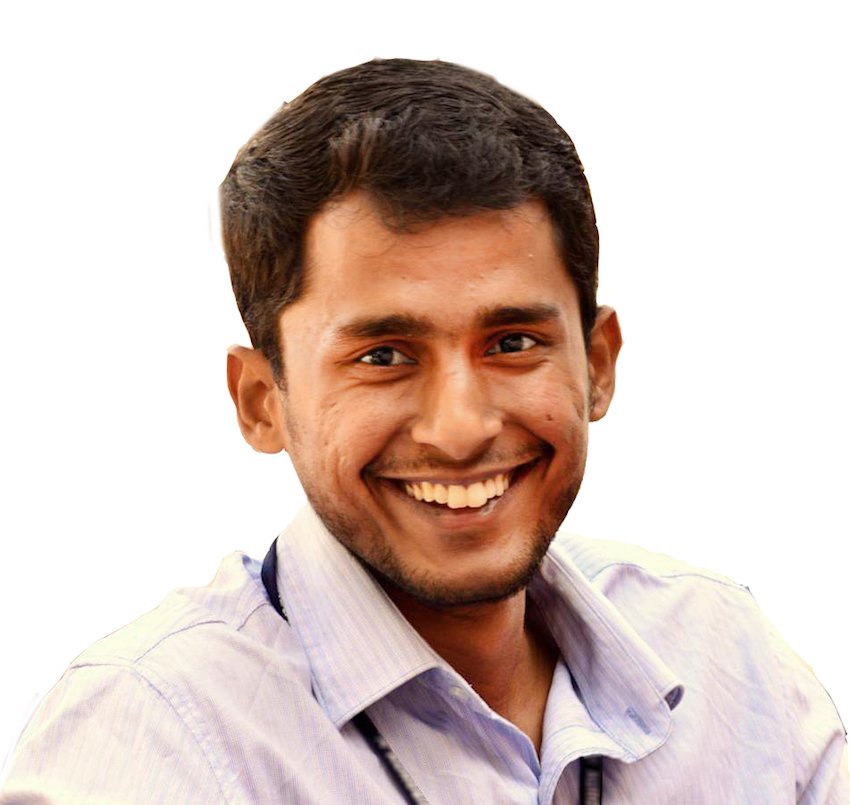Daehee Kang: Healthcare challenges depends on a nation's economy
01 April 2013 | Influencers | By Piyusha Chatterjee

Dr Daehee Kang, chairman, board of directors, Korean Association of Medical Colleges, and dean, Seoul National University College of Medicine, South Korea
Dr Daehee Kang, chairman, board of directors, Korean Association of Medical Colleges, and dean, Seoul National University College of Medicine, South Korea, is an eminent doctor and an administrator based in Seoul. He graduated from Seoul National University College of Medicine, South Korea, with a major in preventive medicine and has a PhD in environmental health sciences from Johns Hopkins University, US.
He was appointed professor at the Department of Preventive Medicine at Seoul National University College of Medicine in 1996 and was a director of external affairs and development of the hospital from 2010-11. His research interests include discovering the biomarkers about the cancer occurrence and the therapeutic effect. He has conducted the high-throughput and genome-wide cancer molecular epidemiological approaches about the breast cancer, childhood leukemia, stomach cancer and bladder cancer. Dr Kang speaks about the latest developments taking place in the domains of medicine and healthcare in South Korea.
What do you think are the healthcare challenges for Korea and Asia Pacific (APAC) in general? How can they be addressed?
Asia holds heterogeneous challenges depending on the country's stage of economic development. Countries with low incomes are faced with poor and differential accessibility to basic health services, prevalent communicable diseases and high infant mortality. On the other hand, high-income countries are confronted with an aging population, a rise in chronic diseases, and a demand of wellness from the public sector. Countries in between the high and low incomes struggle with the issues faced by affluent countries while tackling poverty issues. Likewise, challenges of health inequalities exist within countries depending on the socioeconomic status of the subpopulation.
In terms of healthcare services, providing good insurance coverage to the population is important in the country. More affluent countries have wealthier people and/or the regulatory government who are able to pay for the insurance to ensure coverage. Less affluent countries have more expensive insurance, relative to incomes, and many people are not covered by either universal health insurance systems or employee health insurance systems by law. As such, organizations can collaborate with the public sector, private sector, social enterprises and NGOs to provide financial assistance. For instance, healthcare coverage is of utmost importance in low income countries whereas, new technology development and R&D investment is of main interest in high income countries.
What is stratified medicine and how will it help the healthcare industry in APAC?
The basic concept of stratified medicine is to try and find ways of predicting which treatments are likely to be efficient and most effective in dealing with large group of patients. Especially, COPD, infectious agents, neurodegenerative disorders and cancer patients will benefit from stratification.
To realize this stratified medicine, we need to link academic R&D in biomarkers with pharmaceutical pipelines. Enhanced collaboration across sectors will be key to accelerating the development of stratified medicine. A shift in business models within big pharmaceutical company will lead to a higher efficacy rate within certain patient groups. Also, development of stratified medicines may provide benefits for payers, providers and patients.
What are the challenges in implementing stratified medicine in Asia?
In terms of applications of genomic information to predict risk of disease development or to provide preventive services to normal physiologic variation, numerous large prospective studies in various populations need to be conducted to predict the outcomes based on genetics as well as environmental factors. Asia has started off constructing cohorts a littler later than Western countries, and is expected to give fruitful results within 10 years considering the nature of prospective studies.
Do you think Asia Pacific is lagging behind in innovation and R&D of new drugs?
It is true that Europe and North America has occupied about 72 percent of pharmaceutical industry conventionally. Many Asian countries including Korea has faced the moment of change. From late 2000's, Korean pharmaceutical market has made an eye-opening progress, and recently developed products have shown success in domestic market to advance for the foreign market also. Government recognized the importance of pharmaceutical industry and made a program for building the competivity of pharmaceutical industry.
Also, the pharmaceutical companies themselves invest for R&D and are becoming research-oriented business. Due to regulation of health-related costs in Europe and North America, growth of industries dealing with new drugs will be lessened. On the contrary, even though the size of the market is relatively small, market of Asian Pacific shows fast growth rate as more than 10 percent, and this innovation will be continued mainly due to the market growth of China and India, development of bioengineering technology and advancement of computer.
How do you think this can be addressed? What role can companies, academic institutions and governments play in encouraging research and innovation?
Asia encompasses a spectrum of developed to developing countries that have advantageous features in terms of epidemiologic research. Region-specific exposures that cannot be examined in North America or Europe such as arsenic exposure or various food ingredients can be examined. Changes in lifestyle and environmental patterns can be assessed in the countries that are rapidly adopting 'Western' lifestyles.
Moreover by comparing the effects of a risk factor in different populations, the confounding effects will be more clearly evaluated. Hence it is cardinal that researchers from different institutions and countries share their experience and expertise from the planning steps of research and collaborate to create better results. For instance, Asia Cohort Consortium, a collaborative project of cohorts of approximately 50 active members, with more than 1 million healthy individuals across Asia, has published important results regarding the epidemiology of Asians. They researched on the relation between total mortality and cause-specific mortality.
In the personal genome analysis market, Direct-To-Consumer (DTC) companies have been launching fresh in Korea with the estimated market size to be $275 million in year 2014 and double by the next year. Acknowledging its importance, the Ministry of Health and Welfare, Ministry for Food, Agriculture, Forestry and Fisheries, Ministry of Land, Transport and Maritime Affairs, Ministry of Education, Science and Technology, Ministry of Knowledge Economy and Rural Development Administration have recently conducted a study, 'Joint genomic project in promotion of new industries in the post-genomic era'. It has been proven feasible as a preliminary feasibility study. Hence, investment to its R&D will see an upswing with $540 million to be injected from the national treasury into genome research over eight years starting in 2014.
Tell us about your research interests and work in this field?
My interest in this research field is to search for risk or protective factors -gene, environment and gene-environment interactions-associated with the development or survival in various diseases using molecular epidemiology as a tool, and eventually use the factors found to build prediction models and apply the results to the real world. Some of the disesases we have dealt with are breast cancer, childhood leukemia, stomach cancer and bladder cancer.
One of the studies that have produced various important results is a case-control study for breast cancer study, namely Seoul Breast Cancer Study (SeBCS) since 1993. We have reported the risks between genetic variation and breast cancer according to the estrogen and the progesterone receptor status. Our work also stretches to genome-wide studies, epigenomics and pharmacogenomics (pharmacogenetics) research.
Another important area of interest is cohort, which can provide the highest level of evidence in the field of observational epidemiologic studies. In 2004, my colleagues and I have constructed a large genomic cohort to investigate such genetic, environmental factors and their interactive effects in the development of chronic diseases in a healthy population and are waiting for fruitful results to come. Also, we have been participating in international collaborative projects, such as Asia Cohort Consortium to search for the important epidemiologic risk factors in Asian population.
How did you get interested in this field and what inspires you to continue your work as a researcher and an administrator of a medical school?
The concept of molecular epidemiology was starting to get attention and the field was gradually growing when I was involved in one of my first studies investigate exposure biomarkers of occupational exposure to PAHs (polycyclic aromatic hydrocarbons). Molecular epidemiology is a field of epidemiologic research in which biomarkers are used to clarify the missing link or the black box obscuring the association between exposure and disease outcome.
Traditional epidemiology which focused in population as study target was then able to narrow down to individual levels in examining disease causation. Since then my research has grown with the advancement of molecular epidemiology. Naturally my research interest has continued to exploring personalized preventive medicine. As the dean of Seoul National University College of Medicine, I focused on organizing many centers such as "JW LEE Global Medicine Center" or "Center for Medicine and Korean Reunification". Furthermore, by giving more opportunities to various social experiences to the students, I want to provide them the vision I share.
Lessons from my grandfather reminded me to be a doctor who cares for the society and the vulnerable. I think this learning became my inspiration to drive my plan as a researcher and an administrator. This is also the reason why I chose preventive medicine as my major and be interested in preventing disease at the most precise level for individuals.
How would you like to contribute towards the growth of bioscience industry in Korea?
First of all, by concentrating on development of stratified medicine in Korea, more biomarkers which shows firm validity and reliability will be illuminated. To make more researchers and students to be interested and participate in studying stratified medicine is also important, so more personal resources will be secured. R&D with other biomedical industries will be more crucial, so participation and movement for government legislation to expedite the partnership between academic-industrial sectors is planned.
Is the regulatory environment favorable for bioscience companies in Korea? What changes would you like to see in government policies that would encourage the bioscience industry further?
The government of the former president of Korea specially underscored and supported the growth of biomedical industries and the interest seem to continue, I say Korea has quite a favorable environment for bioscience companies. But in the research area, regulation for protecting private information has been an issue recently. With this governmental regulation, it is hard to gather the personal medical data, including biosamples. For Korea, I consider it important for the government to give other alternatives or flexibility in the application of the law when personal information is used in medical research.












